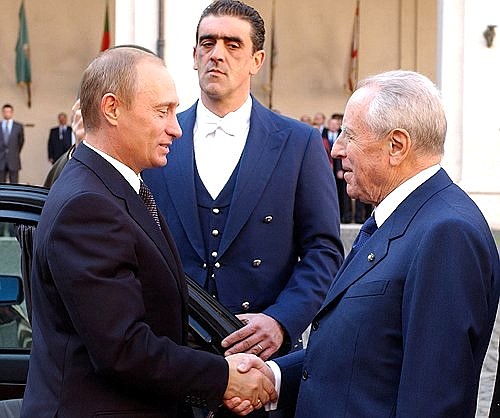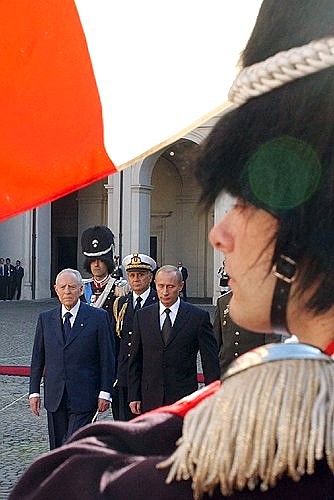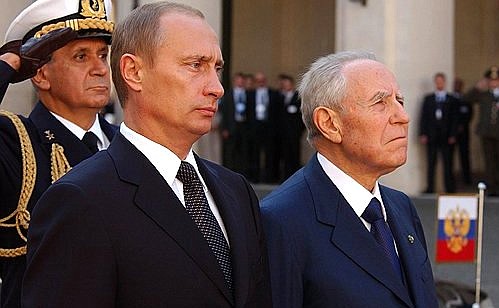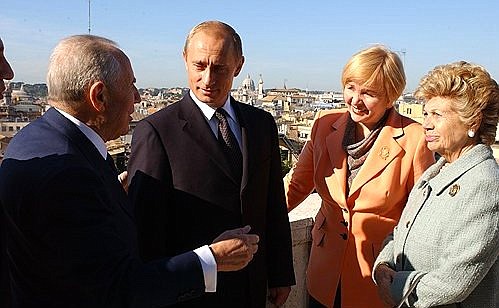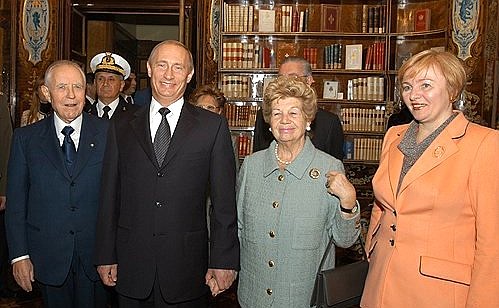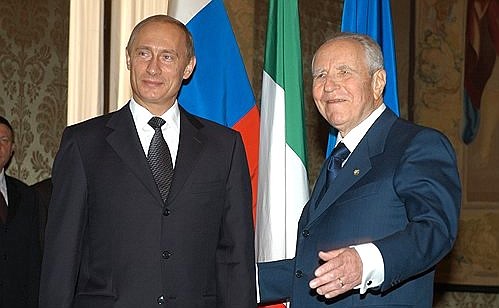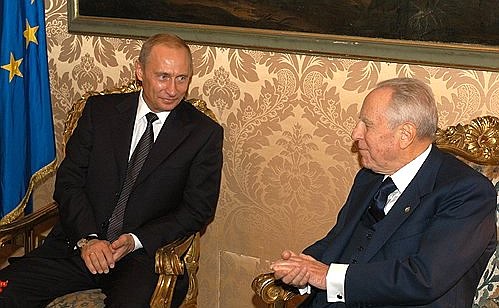The meeting took place at the Quirinal Palace, the official residence of the Italian President.
Carlo Ciampi and his wife, Francesca Ciampi, warmly welcomed Vladimir and Lyudmila Putin at the entrance to the palace. The flags of Russia, Italy and the European Union flew in honour of the distinguished guests. Mounted cuirassiers were lined up on the patio and a guard of honour representing three armed services flanked the red carpet. A military band played the national anthems of the two countries.
After the official welcoming ceremony the Presidents and their wives went into the palace where they chatted informally for a while. Then the two heads of state had a one-to-one meeting.
During their talk the two leaders discussed topical aspects of bilateral cooperation in the political and trade-economic spheres and key international problems. Both sides expressed satisfaction with the positive dynamics of the Russian-Italian partnership and the progress of major joint investment projects.
They discussed in detail the role of the United Nations in the system of international relations and the prospects of its reform, as well as the Middle East issue.
Vladimir Putin invited Carlo Ciampi to come to Russia for an official visit. The invitation was accepted with gratitude.
After the talks two Presidents made press statement. In his speech Mr Putin stressed that Russia set great store by the high level of cooperation with Italy and that the partnership between the two countries was an important factor in European and world politics. The Russian leader praised the constructive approach of Italy, the current President of the European Union, to the joint efforts in moving forward the relations between Russia and the EU on all fronts.
Vladimir Putin named the creation of common spaces – in economics and trade, internal and international security, justice, science and culture – as strategic tasks in bringing Russia and the European Union closer together. He also noted that Russia and Italy were aware of the need to remove the visa barriers and to ensure genuine freedom of contacts between people on the European continent.
